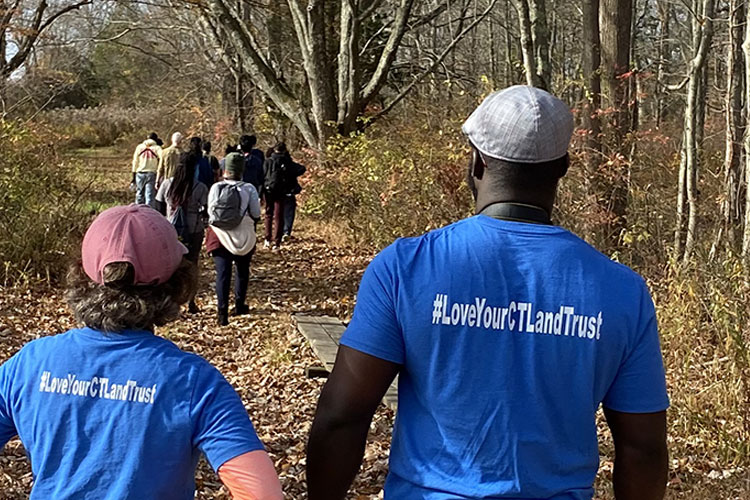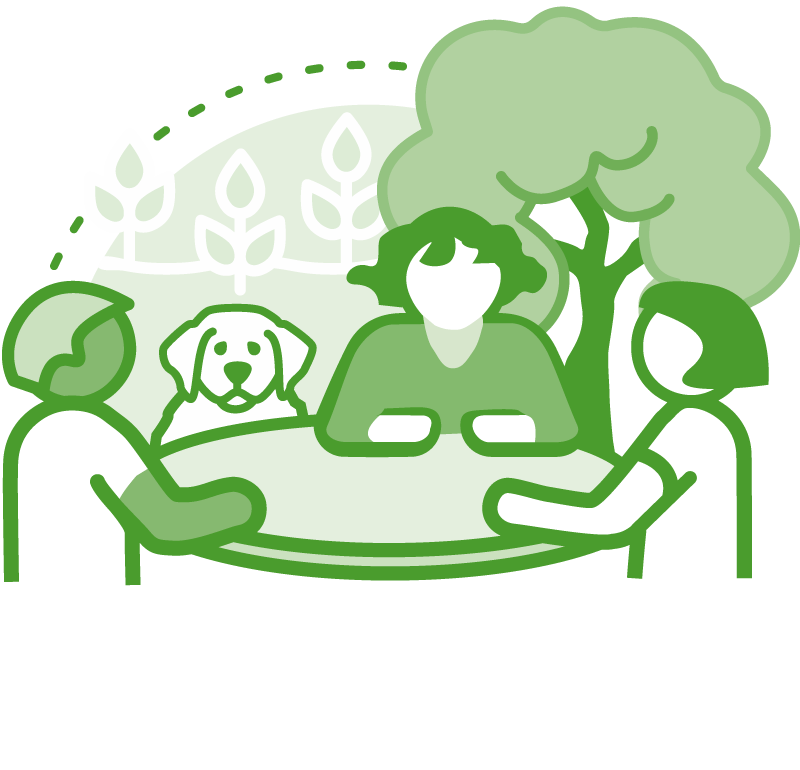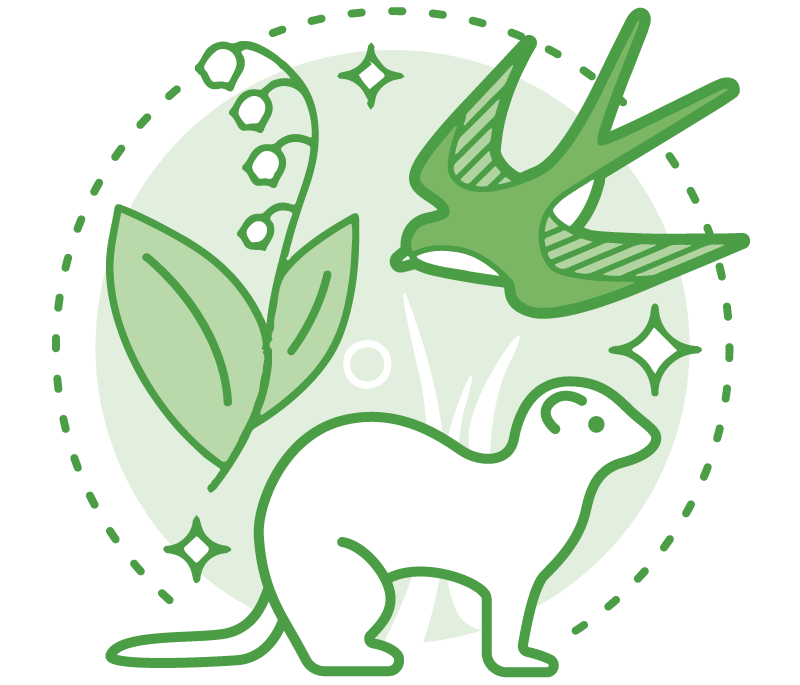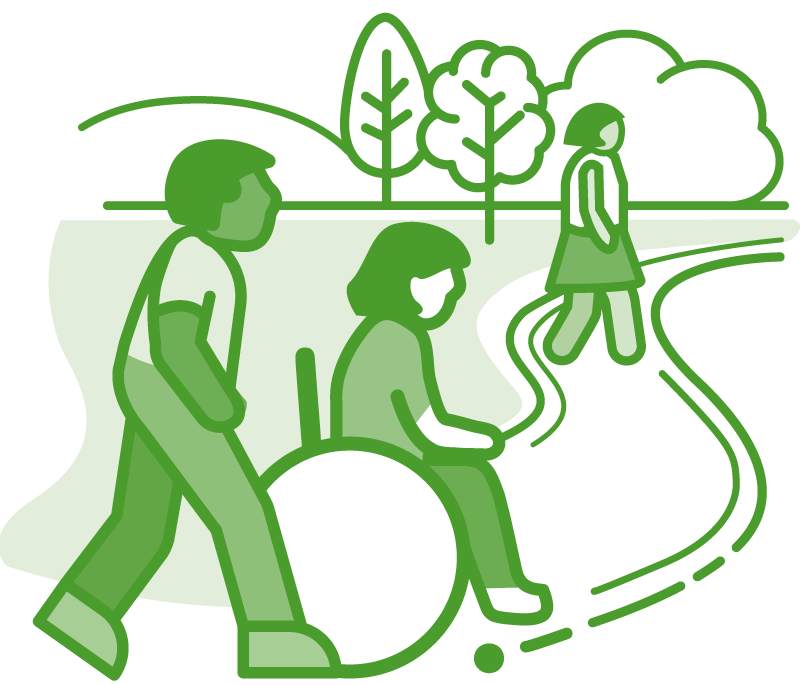
Community-Centered Conservation Programs
Historically, conservation has been approached through a large-scale connectivity lens. However, this lens has ironically disconnected one of the most important factors that impact the health of nature: People. The scope and scale of human impacts on nature have been mostly negative in years past; however, this was not always the case. The harmony and balance that thoughtful stewardship brought to the land, as shown by native, indigenous, and tribal peoples, has helped, not hurt it.
The initial paths and systems that drove us towards conservation, like every system in American history, have been developed with unconscious biases rooted in harmful structures of power, privilege, and prejudice. This has led to putting people second, especially those already at the margins. Seeking to acknowledge, repair, and actively prevent these schools of thought, we are changing the approach. Community-Centered Conservation asks us to shift our responsibility towards putting people first, centering their needs and voices, and not assuming those needs are separate or disconnected from the needs of nature.
Honoring these roots, our Community-Centered Conservation Programs shed light not only on who is doing the conserving but also who does it benefit. When land trusts protect large acres of a biodiverse landscape, they build stronger ecosystems. But when they include and engage a broader diversity of people, they build stronger communities that, in turn, support those same ecosystems. To bring conservation to a wider audience, we start first by meeting them where they are. Through listening, learning, elevating, and amplifying where these communities fit in the conversation, we strengthen our efforts toward equitable perpetuity for all.
Current Programs
Bird & Hike Program
Bird & Hike with CT Land Trusts is a community engagement program to provide communities of color and other underserved communities with opportunities for guided birding and hiking on land trust properties. The program goals include nurturing lifelong connections and creating a sense of belonging and comfort in the outdoors. Underwriting support provided by the Cornell Lab of Ornithology (2022) and the Schumann Foundation (2023).
If your land trust is interested in collaborating with CLCC on a Bird & Hike event, contact Yaw: yodarko@ctconservation.org
Inclusive Conservation Initiatives
A CLCC program commenced in October 2014 (originally “Regional Advancement Initiatives”), the Inclusive Conservation Initiatives help land trusts bring conservation to wider audiences and engage people from all walks of life. Each initiative is uniquely suited to a particular region and engages land trusts in collaborative work with both conservation and non-conservation partners to expand organizational reach and impact. Results of this program have included the creation of Regional Conservation Partnerships, increased community awareness and relevance, and deeper engagement with new audiences and diverse user groups.
2022-2023 Northeast CT Initiative — Bringing Conservation to New Audiences
Building on our previous efforts in this region, the Northeast CT Advancement Initiative is focused on increasing inclusivity and expanding access to conservation work. CLCC will connect land trusts with different user groups who will assist land trusts in making their properties and/or programs more welcoming and accessible to a broader and more diverse community of users.
In phase one, we will work closely with community user groups to perform an accessibility assessment of the participating land trusts’ current trails and/or outdoor programs. In phase two, we will reflect on the assessment findings through a series of roundtable dialogue sessions and explore next steps to implement more inclusive trails and programming. Participating land trusts and user groups will also be encouraged to share their experiences and findings through broader regional conversations and conference workshops hosted by CLCC.
This program is generously supported by the Community Foundation of Eastern Connecticut.
2022 Northwest CT Initiative — Looking Beyond the Usual
CLCC is delighted to offer, with support from the Connecticut Community Foundation, a new round of roundtable discussions among land trust peers, community groups, and municipal partners in Northwest CT, centered around expanding our perspective on what conservation means to us and the community at large.
Facilitated by equity trainers, Ashley Stewart and David Sutherland, this initiative will engage conservationists and others interested in land use with introducing diversity, equity, inclusion, and accessibility into their conservation work, and use these topics as a lens to brainstorm ways to work locally and in partnership with non-conservation community organizations for a shared, equitable purpose.
General topics include: Looking at Conservation More Broadly; Conservation that Addresses Social and Environmental Needs: Community Land Trusts, and Accessibility in Nature.
Success Stories
Learn more about the impact of CLCC's recently completed advancement initiatives
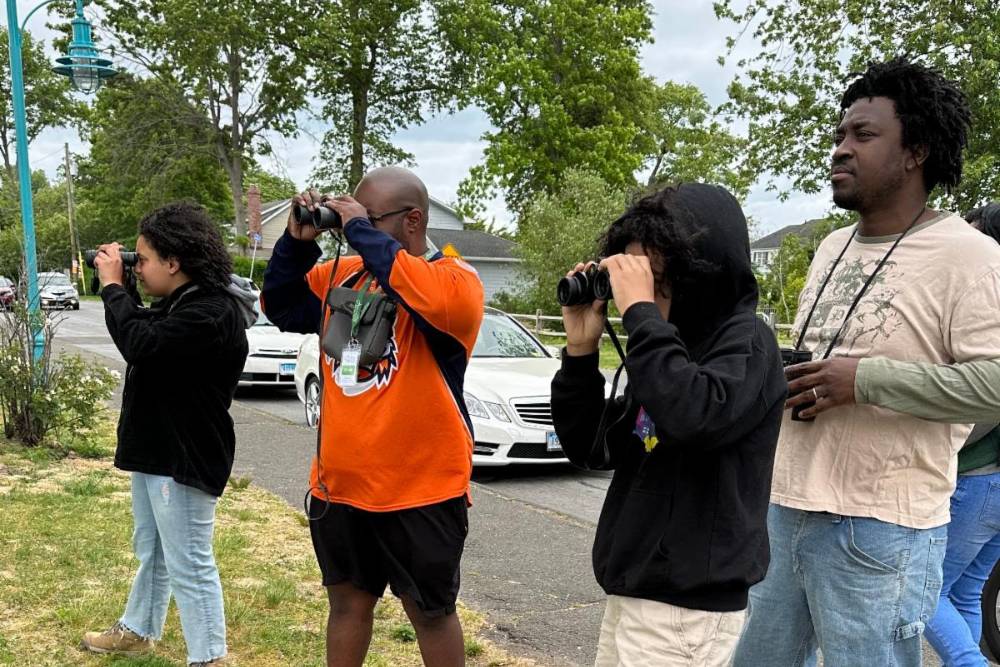
Black Birders Week with CLCC at Ash Creek
Looking for the birds during Black Birders Week at Ash Creek
The Aspetuck Land Trust, Connecticut Land Conservation Council, and the Sierra Club of CT hosted a BlackAFinSTEM Collective Bird Walk at Ash Creek in Bridgeport.
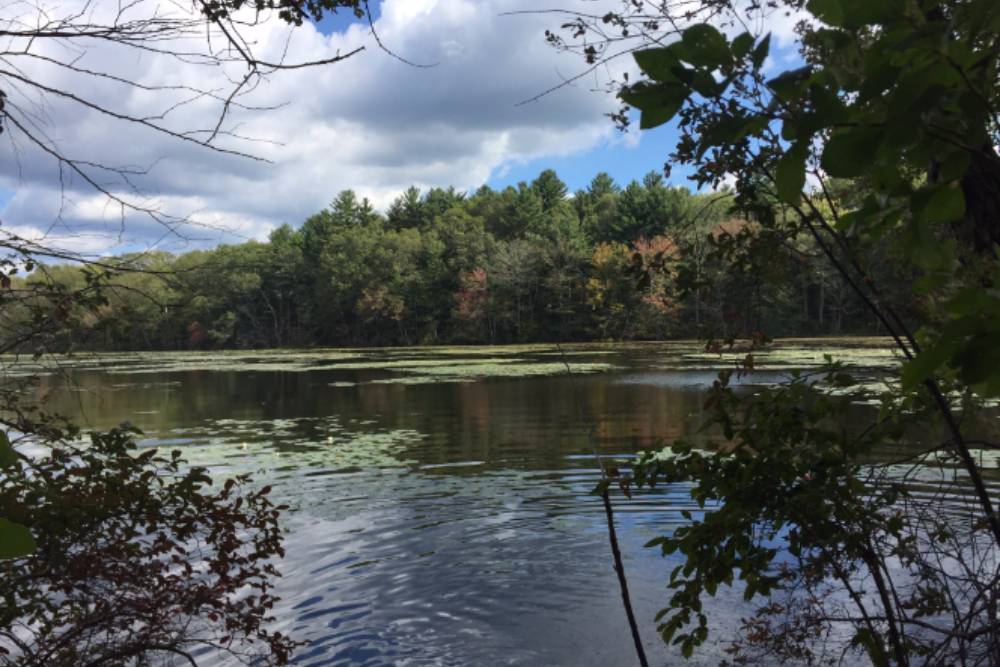
Northeast Connecticut Advancement Initiative: Inclusive and Accessible Conservation for All
Empowering Northeast CT for Accessible Nature Experiences
Building on previous conversations with land trusts in this region, the Northeast CT Advancement Initiative is focused on increasing inclusivity and expanding access to conservation work. In particular, we are working closely with community user groups to perform accessibility assessments of Joshua’s Trust’s trails.
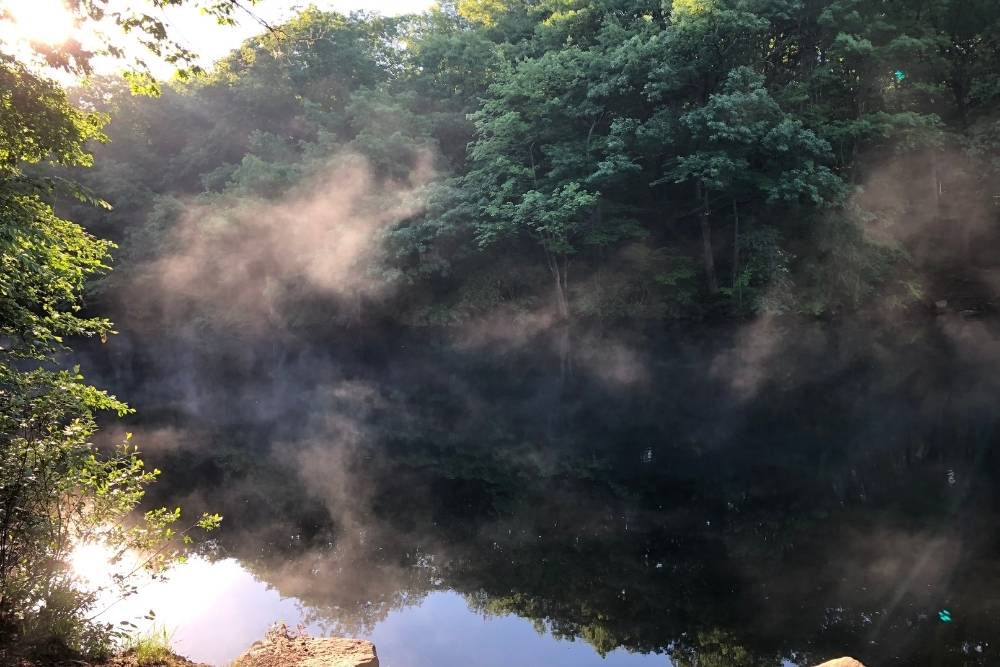
Hiking with the Birds
Embracing Firsts and Exploring Nature on the Bird & Hike Program
CLCC was fortunate to experience the joy of discovery and first-time adventures on the trails at two different events as part of the Bird & Hike program. From spotting unique bird species to embracing the beauty of autumn foliage, youth and adult participants were introduced to a world of natural wonders, fostering a deeper appreciation for the environment and community connections.
